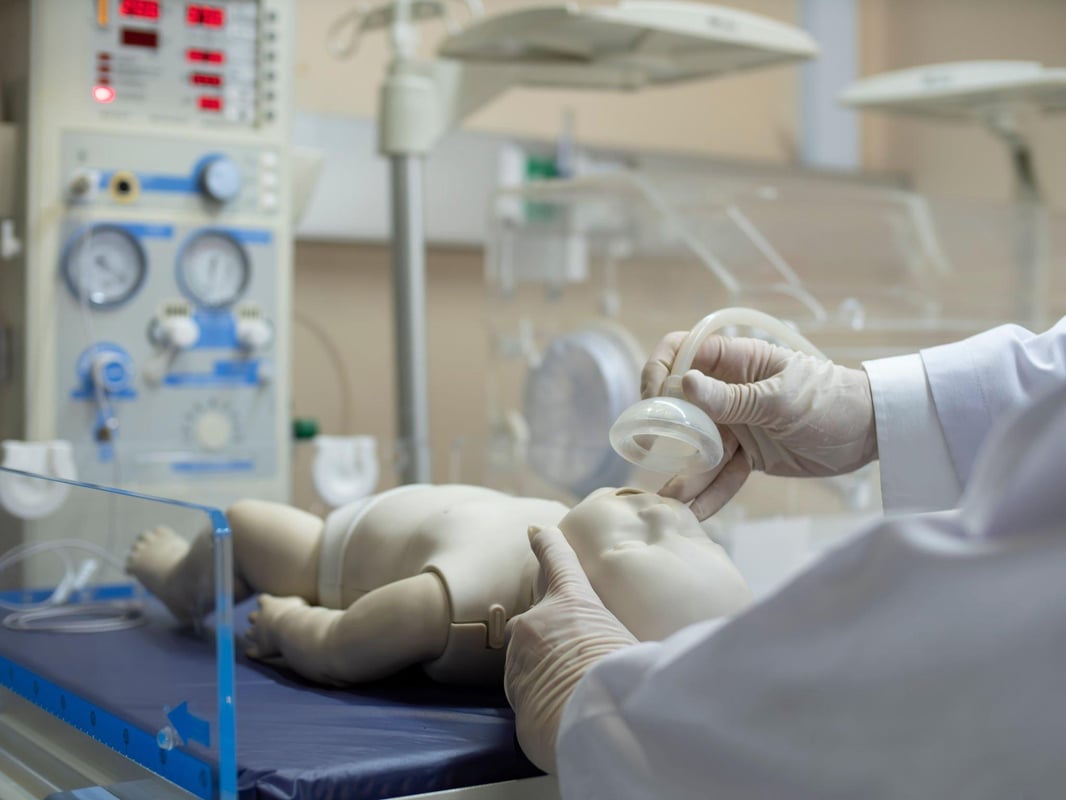
Financial aid (may be available)

Financial aid (may be available)

Financial aid (may be available)

Financial aid (may be available)
$276 total
$2,075 total
$270 total
$410 total
$365 total
$150 total
No cost info
$285 total
$150 total
No cost info
In the medical field, being equipped with the right skills can make all the difference in saving lives. One such set of skills can be acquired through Pediatric Advanced Life Support (PALS) training. This blog post aims to provide you with a comprehensive guide on PALS classes available in Milwaukee, brought to you by Dreambound, the largest platform for students to find vocational training programs.

Pediatric Advanced Life Support (PALS) is a series of protocols and procedures that are designed to guide responses to life-threatening emergencies in infants and children. The main objective of PALS is to provide advanced care and interventions for children in crisis. The program is a combination of lectures, demonstrations, and hands-on learning, ensuring that students are well-prepared to handle such emergencies.
Before enrolling in a PALS class, there are certain prerequisites that must be met. These prerequisites vary from program to program, but some of the common requirements include:
Basic Life Support (BLS) certification: This is a basic requirement for most PALS programs. BLS certification ensures that students have a foundational understanding of life-saving techniques.
Understanding of ECG Rhythm Interpretation: Knowledge of ECG rhythm interpretation is critical for PALS, as it's used to detect and treat cardiac conditions in children.
Familiarity with Pediatric Emergency Equipment: Being well-acquainted with pediatric emergency equipment is another requirement for PALS training.
When looking for a PALS class, there are certain factors to consider:
Accreditation: Always ensure that the training institution is accredited by a recognized body.
Experienced Instructors: Look for instructors with a solid background in pediatric advanced life support. Their real-world experience can provide valuable insights.
Hands-on Training: Theoretical knowledge is important, but practical skills are equally crucial in emergency situations. Make sure the class provides plenty of opportunities for hands-on training.
A typical PALS class involves a combination of theoretical instruction and practical training. The course curriculum may include:
Pediatric emergency assessment
Basic life support skills
Effective resuscitation techniques
Recognition and management of respiratory and shock emergencies
Post-cardiac arrest care
Upon completion of the PALS course, students must pass a written exam and a skills evaluation test to become certified. The certification is valid for two years, after which healthcare professionals must take a recertification course.
Once you have completed your PALS training and obtained your certification, you can start looking for jobs that require this qualification. Such jobs can be found in various healthcare settings, such as hospitals, clinics, and emergency medical services.
After becoming a PALS, you can consider advancing your skills and knowledge by taking additional classes. Some of the courses you might consider include:
Advanced Cardiac Life Support (ACLS)
Neonatal Resuscitation Program (NRP)
Emergency Pediatric Care (EPC)
Continuous learning is crucial in the medical field. With new research and advancements happening all the time, its essential to stay updated. Regular training and recertification not only enhance your knowledge but also ensure that you can provide the best possible care to your patients.
PALS play a critical role in the healthcare system. They are often the first responders in pediatric emergencies, where their knowledge and skills can mean the difference between life and death. PALS certification is often a requirement for healthcare professionals working in intensive care units, emergency departments, and ambulance services.
Both PALS and ACLS are advanced life support certifications, but they cater to different demographics. PALS is designed for healthcare professionals who respond to emergencies in infants and children, while ACLS is for those who respond to cardiac emergencies in adults. Your choice between the two would largely depend on your career goals and the patient demographic you wish to serve.
Having a PALS certification can significantly enhance your employment prospects and career advancement opportunities. It demonstrates to potential employers that you possess the advanced skills and knowledge necessary to handle pediatric emergencies.
Embarking on a PALS training course is an investment in your career that can open up a world of opportunities. Not only does it equip you with life-saving skills, but it also improves your employability in the competitive healthcare industry. For more on PALS and other vocational training programs, check out these related articles on becoming a Radiology Technician and a Certified Medication Aide in Wisconsin. Remember, continuous learning is key in the fast-paced medical field, and adding a PALS certification to your portfolio is a step in the right direction.
If you're considering pursuing this certification in a different location, we have other in-depth guides to help. Check out our guides for different cities below:
Dreambound's platform allows prospective students to find the right educational program for them through searching, filtering, and connecting with our extensive selection of career & technical education partners.
Dreambound has over 70 programs across healthcare, technology, business, and industrial trades. This includes programs such as Medical Billing, Cybersecurity, and welding.
Some of our schools offer financial aid for those who qualify. Many others offer payment plans, where you can pay the cost of class over time.
Yes, Dreambound offers many online programs. On Dreambound's search, you can filter by online, in-person, and hybrid (part online, part in-person).
Dreambound is completely free for you to use! We are supported by schools and organizations who pay to advertise on our website, so we can offer all of our career resources for free.